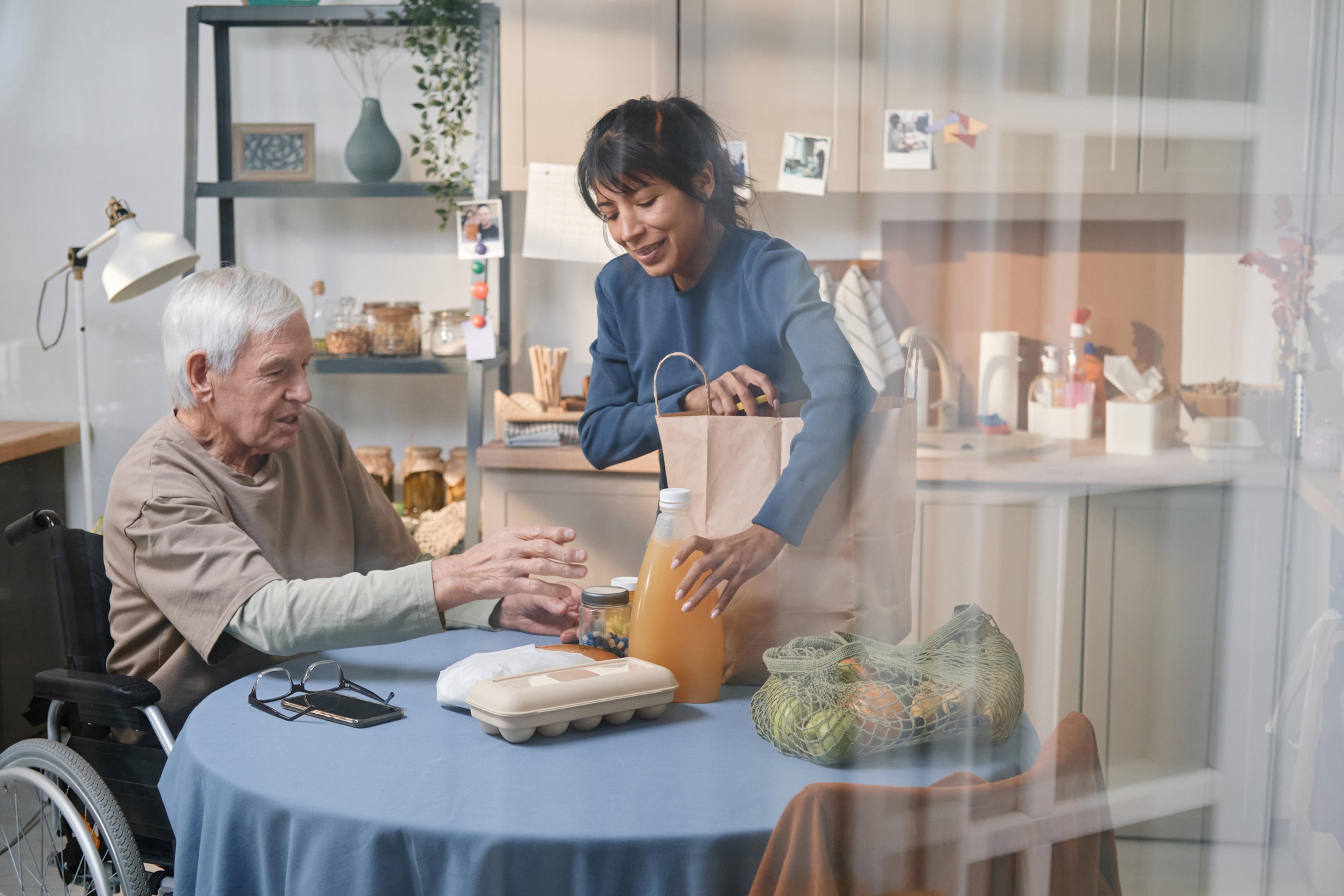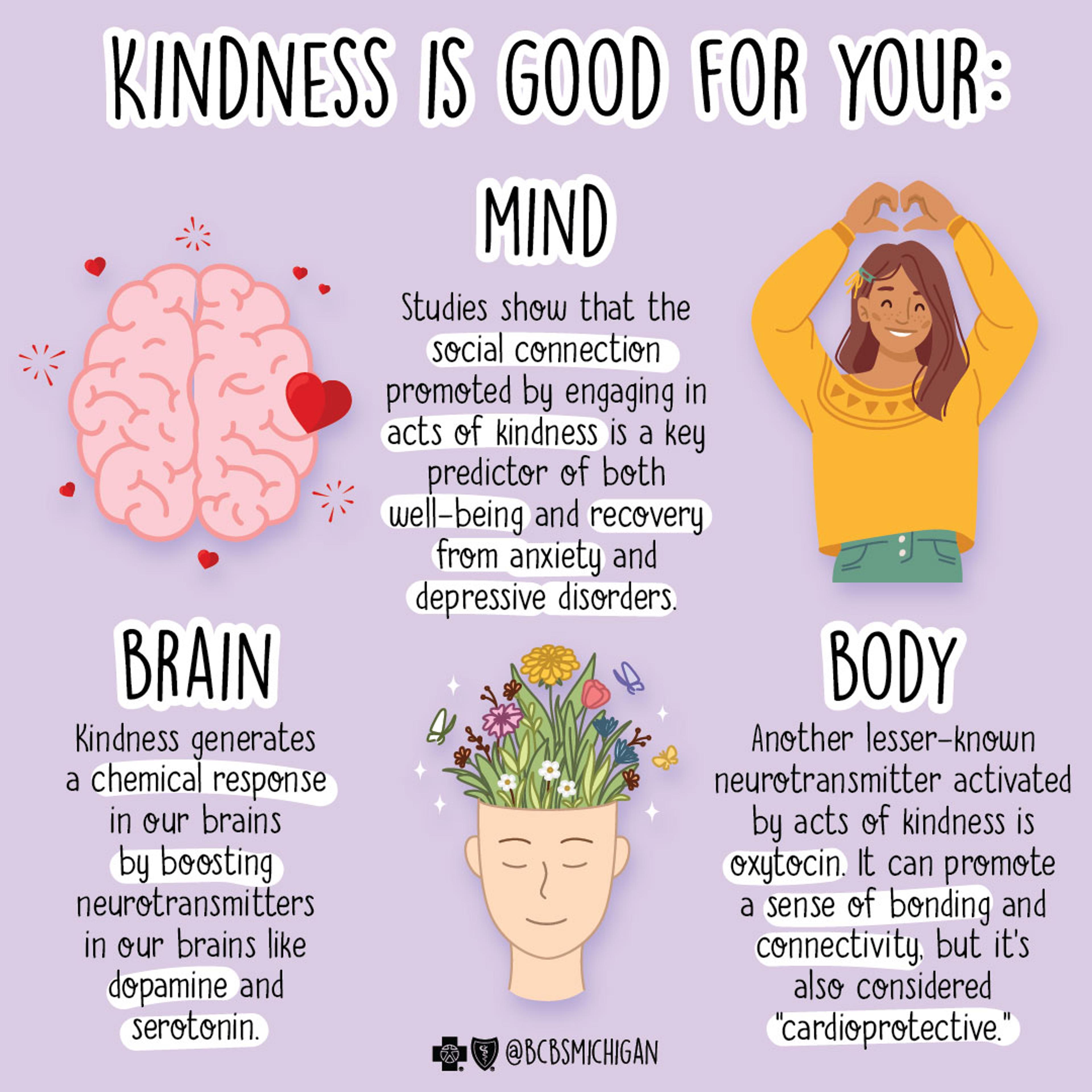The Science Behind Kindness: How it Helps You
Jake Newby
| 3 min read

When you jump someone’s car after their battery dies or help an elderly person with their groceries, generally, you are doing so to be selfless. Your intention is to help somebody else. But science shows those acts of kindness are beneficial to you, too.
”Helper’s high” is a concept consisting of positive emotions that follow a selfless service to others. It demonstrates the positive impact kindness has on our physical and mental states. Kindness can boost our self-esteem, increase our confidence, and strengthen our sense of self, and even our sense of community.
We know that healthy eating, consistent exercise, and good sleep are pillars to excellent health, but don’t underestimate the physiological benefits linked to being kind and generous.
How kindness helps you
It’s good for the brain
Kindness generates a chemical response in our brains by boosting neurotransmitters in our brains like dopamine and serotonin. Being kind and selfless to others registers with our brain’s reward system, giving us feelings of satisfaction and well-being.
It’s good for the mind
Kindness promotes connectivity to others. Doing something as generous as paying for a food order for the person in line behind you can create a bond that may even extend past that day. Not that that’s the intention, but that’s the kind of social connection that can come from random acts of kindness.
Studies show that the social connection promoted by engaging in acts of kindness is a key predictor of both well-being and recovery from anxiety and depressive disorders. Kindness helps people feel less lonely and isolated. When you donate time, money, and resources to your community, it creates a sense of belonging within your community, as well.
It’s good for the body
Another lesser-known neurotransmitter activated by acts of kindness is oxytocin, which is sometimes known as the “love hormone.” Oxytocin has been studied extensively for its role in promoting a sense of bonding and connectivity, but it’s also considered “cardioprotective.” As oxytocin levels in our bodies increase, blood vessels dilate, inflammation is reduced, and our blood pressure is lowered. Alas, our longevity improves the kinder we are.

Be kind to yourself
It is easier and more natural for some people to be kinder to others than they are to themselves. In the spirit of being kind to improve your overall health, be kind to yourself when you misstep or make a mistake. For a lot of us, being kind to ourselves is rooted in self-care. Prioritize your self-care by putting some of these ideas into motion:
- Document your gratitude by journaling.
- Engage in mindfulness/meditation
- Give your brain and body a break at work by going for a walk.
- Practice positive affirmations, like reminding yourself of recent successes at work or compliments you’ve received from family and friends.
Be kind today…and tomorrow
One way to take action immediately is to wake up and ask yourself “how can I practice kindness today?” Set out to be kind to others and to yourself daily. Even acts of kindness as seemingly small as complimenting a colleague’s work or holding the door open for a stranger can help set off those aforementioned chemical responses.
Make a habit of repeating these acts of kindness, not only in the name of helping others but in helping yourself.
Photo credit: Getty Images
Read more:





